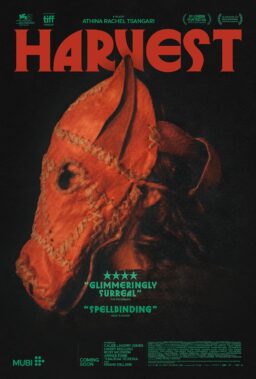
Defining moments — in movies, and in a movie-lover’s life.
A comment by Anonymous at Girish’s on the stages in the life of a cinephile contains more truth than I’d like to admit:
1. Ages 6-13/ marvel at the lights, learn about adult life, eat sugar/Disney, Spielberg, John Hughes
2. Ages 14-19/ age of discovery, excitement and inspiration/ Rear Window, Bicycle Thief, early Godard
3. Ages 20-26/ O.C.D. attempt to see everything by every major director/ Dreyer, Ozu, late Godard
4. Ages 27-33/ burn out period, start seeing films rarely and complain about how bad movies have gotten, sell your old videos/ Straub, Snow, Dziga Vertov Group
5. Ages 34-41/ burn out continues, fall asleep in one two many Sokurov films, stop watching art films and start watching blockbusters again, become a faux-populist and develop inane arguments about movies you’ve never seen
6. Ages 42-45/ watch only Reality TV and Internet porn, get drunk alone, send mass emails linking to Armond White reviews
7. Ages 46- /after therapy and anti-depressants repeat steps 3-6
In my case, stage 1 began at age 3 (at a drive-in with, yes, Disney’s 1961 “101 Dalmatians”). Stage 3 lasted until about age 37, and stages 4 and 5 were condensed, though I’m not sure I ever became a neo-populist, since I never disliked popular movies just because they were popular. (No comment about stage 6.) My real “crisis of faith” in movies was from about 1998 – 2003.
BTW, the book “Defining Moments in Movies,” edited by Chris Fujiwara, that inspired this comment is delicious and nutritious cinemaniacal brain candy. Once you start tasting, you’ll just want more and more. As Fujiwara explains in his introduction, the 800-page, still-studded nibble-book (organized by decade, 1890 – 2000+) “is designed to highlight film scenes, or events in the history of cinema, that the [62] contributors (who include film critics, film historians, writers in other fields, and academics) regard as profound, essential, illuminating, or significant…” — “a network of visions and preoccupations, an anthology of cinephilic passions, a casual encyclopedia of cinematic events.” In fact, Fujiwara’s intro is a worthy “moment” itself.










